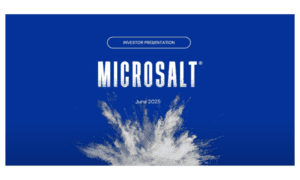Learn the benefits of the many keto snacks available, how they connect to lower sodium, and how to enjoy these snacks safely.
Key Takeaways:
- The ketogenic (keto) diet can dramatically reduce a person’s sodium intake
- Choices are heart-healthy, including salads, nuts, vegetables, and more
- Keto-centric dietary changes can have harmful side effects if not monitored by a health professional
The keto diet is a low-carb, high-fat, high-protein plan that’s now 160 years old with roots in our hunter-gatherer history. These ancient dietary habits could also prove to be the future for snack manufacturers who want to be part of the low-sodium revolution driven by organizations like the FDA, the WHO, and the CDC.
Today, keto snacks can be found in many forms. Keto diets have naturally lower sodium content because they eliminate processed foods – a source of over 70% of the average American’s daily (and excessive and dangerous) sodium intake.
While ketogenic diets can help control sodium consumption, those who follow them must be aware of the dangers of too little sodium. Read on to see how future snack choices can help your health and which factors might upset a healthy physical balance.
A quick rundown of keto snacks
Assuming you have the “all clear” from your doctor, a ketogenic diet may be a tasty and fulfilling route to benefits like lower body weight, improved cardiovascular health, and more. Here’s a list of keto-friendly snacks:
- Keto chips
- Cold cuts (look for low-sodium brands)
- Cheese
- Sushi and seaweed
- Sandwich wraps
- Salads
- Dark chocolate
- Nuts, nut butter, berries, and seeds
There’s also a delectable selection assembled by Healthline that includes ketogenic snack choices to please any palate. All these can be low in sodium, but this doesn’t mean they automatically are. You should know how to check if these snacks deserve to be considered the future of salt.
You should also consult your healthcare provider about any potential risks these food options may pose based on your current medical status. The switch to ketogenic living can be difficult for even the healthiest people, while for others, it can even be unsafe.
Medical conditions and the keto diet
It’s important to remember that our bodies need sodium to maintain optimal health. Getting the proper amount is essential for:
- Muscle contraction and relaxation (no physical movement would be possible without sodium to transmit electrical signals)
- Regulating heart rhythm
- Stabilizing cellular and blood fluid levels
- Preventing hyponatremia (a potentially life-threatening cellular swelling)
A ketogenic diet could potentially interfere with any of these functions, with those suffering from underlying conditions in particular danger. For example, consider a keto diet very carefully if you’re diabetic. A lower carbohydrate intake will probably require an adjustment of your insulin and other medications; maintaining the same dose(s) could affect your blood pressure.
Lactating mothers face a relatively low but nonetheless significant risk of ketoacidosis – a condition that may cause chest pains, nausea, vomiting, and other reactions. One case study details the experience of a woman who developed lactation ketoacidosis while on a ketogenic diet and had to restart a carbohydrate-rich diet as part of her recovery.
Keto diet and blood pressure
Keto can help blood pressure issues because it can reduce obesity, which contributes to blood pressure complications as well as many other problems. However, those with hypertension (high blood pressure) are at risk with keto because they may give in to salt cravings and overdo their intake as a lower-sodium lifestyle kicks in, possibly causing headaches and other “keto flu” symptoms.
They may also find their hypertension spikes when consuming bouillon – a commonly recommended practice during the early days of keto to soften the sudden sodium reduction. Such increases in hypertension may also indicate sodium sensitivity.
A low-carb diet lowers blood pressure, meaning those already living with hypotension (low blood pressure) could see their condition worsen gradually or suddenly. Low-sodium diets can also lead to increased aldosterone production as the body tries to retain sodium, elevating blood pressure in the process. Keto might not be for you, but it’s not the only heart-healthy approach out there.
Alternatives to keto snacks
Our earlier blog explored the DASH diet and covered how this plan has earned high praise from the medical community. It allows for an extensive range of nutrition, including fruits and vegetables, nuts and seeds, chicken, fish, and grains.
You may have heard of the Atkins Diet to eat in a healthier way, but such diets are not a great idea since processed meats and other such foods (and therefore excessive sodium) are part of it. A better alternative to keto snacking is increasing the protein you include in your main ketogenic meals. When properly adjusted with medical advice, this extra nourishment could reduce or eliminate the need for snacks altogether.
If you must snack, we’ve compiled a list of 11 foods that are keto-friendly, nutritious, and tasty with only half the sodium! Lower sodium options have a pivotal role to play in the future of keto snacks, but consumers must understand food labels, and food manufacturers must embrace new sodium technology.
Snack makers and consumers can embrace keto while keeping the salty flavor
Food manufacturers with sodium in their products needn’t alienate keto-loving customers. The public palate is keyed toward salt – a fact that can keep many from trying keto – so imagine the attraction of snacks that are keto-friendly and deliciously salty.
It’s possible by adding MicroSalt® to the production process. It has the same full flavor as traditional salted snacks using only 50% of the sodium. Just look to the success of our SaltMe!® snacks for proof!
It’s the ideal way to help consumers follow a ketogenic, low-sodium lifestyle without the discomfort and temptation caused by foregoing its flavor. Keto may be rooted in the past, but it can be a bridge to the future of salt for snack manufacturers with MicroSalt® in their mix.
Contact MicroSalt® today with any questions
Our team strives to create a new way of enjoying food where great taste and good health go together. MicroSalt® is the proud global winner of the P&G Alumni Network’s 2021 Star Entrepreneur Award, and we strive to help make healthy eating a way of life. Contact us via our message page or call 1-877-825-0655 to learn more.




